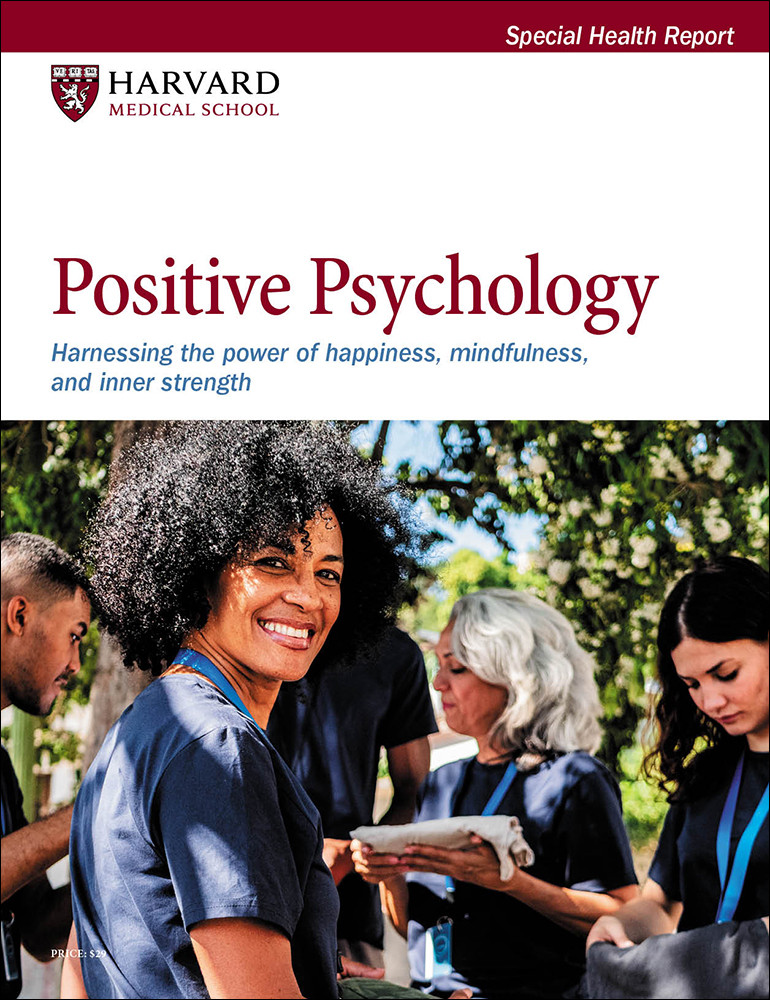The simple memory and attention booster you can do anywhere for free
You can incorporate mindfulness into many parts of your day.
- Reviewed by Anthony L. Komaroff, MD, Editor in Chief, Harvard Health Letter; Editorial Advisory Board Member, Harvard Health Publishing

When you walk down the street, do you really see the sights along the way? Do you note the types of trees you pass, the sunlight filtering through their branches, or the whistling trills of robins perched in them?
Those types of details are easily missed in a world of electronic screens and hectic schedules. But they’re increasingly important as we get older and attention and memory start to change.
“Attention is the most crucial factor when it comes to memory. What you pay attention to is what you remember,” says Dr. Andrew Budson, lecturer in neurology at Harvard Medical School and co-author of Why We Forget and How to Remember Better.
Fortunately, there’s an easy way to improve attention and memory: a practice called mindfulness.
What is mindfulness?
Mindfulness is the practice of focusing on the present moment. It involves being fully aware of everything around you and within you: the sights, sounds, smells, and touches you might be experiencing, as well as your feelings and thoughts. It’s not necessary to judge and analyze this information, only to observe it as it comes and goes.
This exercise triggers the relaxation response, a well-studied phenomenon that turns off the faucet of certain hormones (adrenaline and cortisol) that flow through the body when you’re stressed. Reducing those hormones helps lower your heart rate, blood pressure, and breathing rate.
Reduced stress, in turn, leads to sharper thinking. “When adrenaline puts you in a fight-or-flight state, it helps you pay attention and remember whatever is stressing you out, but it comes at the expense of everything else you’re trying to remember,” Dr. Budson says. “Without the stress hormones and distractions of whatever caused stress, the mind is able to focus attention on what you want or need to remember.”
With that ability, and a habit of zeroing in on details, it becomes easier to remember a person’s name or an appointment time, or something new you’ve read in the paper or watched in a documentary.
Evidence for mindfulness
Many studies have shown that mindfulness helps you concentrate, pay more attention, engage more effectively in daily activities, and improve well-being. And the practice might have lasting effects.
For example, a 2021 study of 81 healthy people over age 60 found that those who took part in six months of mindfulness training were better able to maintain attention. Participants also showed brain changes that could help them process information and focus better.
Why it’s important right now
Our beautiful brains are aging every day, which causes attention and memory to become a little fuzzier. Part of this is due to normal changes in brain cells. “They go from being particularly good at learning new information to being particularly good at holding on to previously learned information,” Dr. Budson says.
Changes might also be due to subtle brain injuries over many years, such as ministrokes, mild head trauma, and even pollution exposure. “Many of these little injuries affect the frontal lobes of the brain or their circuitry and lead to minor difficulties with attention and memory,” Dr. Budson says.
Practicing mindfulness might help you fight these various changes and make the most of your older, still beautiful brain power — your intellect, imagination, and deep knowledge base.
Give it a try
You can take a mindfulness class or simply practice mindfulness at home. Sit quietly in a comfortable position, close your eyes, focus on your breathing, and observe sounds, sensations, and thoughts as they come and go.
You can also incorporate mindfulness into your daily life. Go on a mindful walk, paying attention to the trees you pass and everything about them. Pay attention while you eat, savoring every bite — or while doing any activity. Just focus on your breathing, engage your senses, and note the tiniest details, from the way your hands move and how water feels as you wash dishes, to the way your grandchild smiles and his hair shines in the sunlight as you play with him. The more you practice, the more mindful you’ll become, and better able to notice and remember details.
This article is brought to you by Harvard Health Online+, the trusted subscription service from Harvard Medical School. Subscribers enjoy unlimited access to our entire website, including exclusive content, tools, and features available only to members. If you're already a subscriber, you can access your library here.
Image: © momcilog/Getty Images
About the Author

Heidi Godman, Managing Director
About the Reviewer

Anthony L. Komaroff, MD, Editor in Chief, Harvard Health Letter; Editorial Advisory Board Member, Harvard Health Publishing
Disclaimer:
As a service to our readers, Harvard Health Publishing provides access to our library of archived content. Please note the date of last review or update on all articles.
No content on this site, regardless of date, should ever be used as a substitute for direct medical advice from your doctor or other qualified clinician.
















